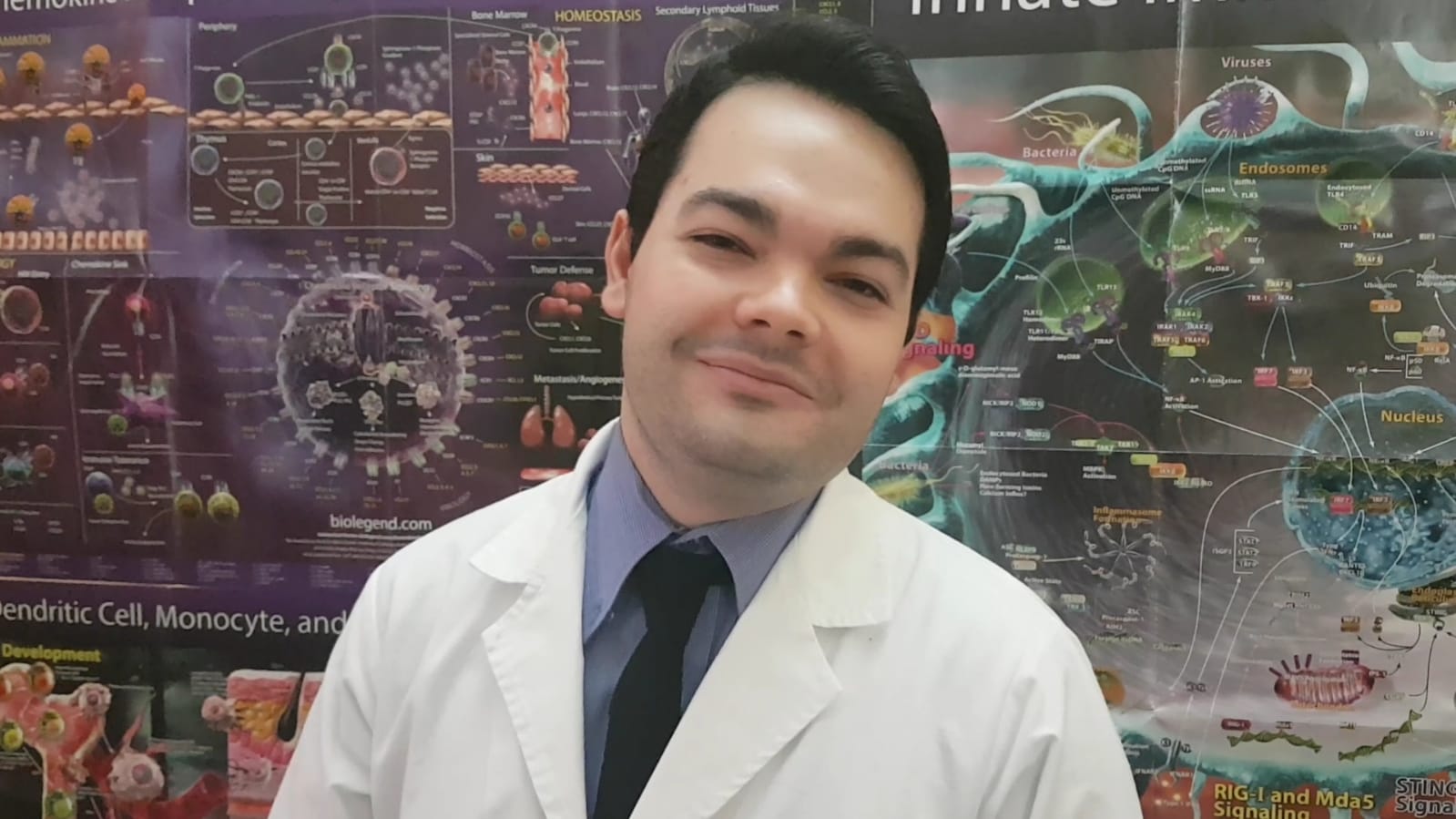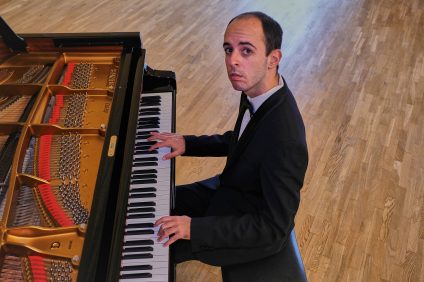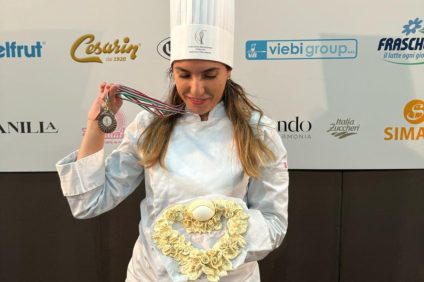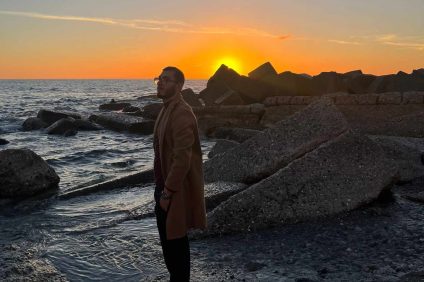"The future of medicine is multidisciplinarity. When I started this faculty I realized that my studies provided a lot of information but that I also had a lot of questions left. I lacked a number of approaches, certain quantitative and qualitative mathematical skills for interpreting data. For this reason I started taking extra-curricular exams, almost for fun. And gradually I had the desire to learn and expand more and more the parts that I did not fully understand. This is how my degrees were born".
Which are so many for his only 25 years. To speak is Samuele Cannas, record student with four degrees already discussed in recent months. Last July Medicine and Surgery at the University of Pisa. Then in September the degree in Biotechnology, in October those in Biomedical Engineering and Molecular Biotechnology. In December he will discuss the master's degree in Medical Sciences at the Scuola Sant'Anna in Pisa. "My main goal, however, always remains the same, medicine and in particular robotic surgery linked to tumorous pathologies of the abdomen. A field where there is still a lot to discover".
How was this passion for medicine born?
I've always been attracted to the scientific world. When I was faced with a natural phenomenon I liked to investigate, to go beyond what I was told. My question was always the same, "why"? Then some family stories related to the health of my grandparents were added which further motivated me to take this path. Alongside, but not least, is my great love for music. A path that I followed in parallel with the scientific one.
Oh yes, because in 2017 you also graduated in piano at the Conservatory of Cagliari, the city where you were born ...
Indeed. Music has been fundamental to my growth, it changed me radically and profoundly. Of all that I have studied, the musical one has been the most complex path because music touches the spheres of emotionality, of irrationality. When you go on stage it is essential to excite, and this is a very difficult thing. There is a huge amount of work behind it. Thanks to music I have enriched myself spiritually. And music was also my training ground from an organizational point of view. The organization I learned by studying the piano then helped me in all the other areas of study.

Your vision of the multidisciplinary nature of medicine is certainly fascinating but very demanding and equally selective. You are a record student, how many can do what you did?
I don't care about records and that's not what I'm looking for. Certainly not everyone does what I did. But it is not essential to take many degrees to broaden one's field of knowledge. It is important not to remain closed in your own single sector. Multidisciplinarity is essential because traditional medicine is no longer enough. In the classical method, a phenomenon was observed, a hypothesis was made and it was demonstrated. Today we work with data, for this reason a doctor must know bioinformatics, biostatistics. The doctor must also be a bioengineer, a biotechnologist because what he is dealing with has changed over time.
You are very young and many medals are already hanging on your jacket. Which?
I was recently awarded the Socrates 2021 Award, about ten days ago I won the Italian Excellence 2021 award. In the past I was Alfiere del Lavoro for my particularly brilliant school career. I have received many other awards, I have also won the La Rete delle Idee award several times.
Many awards that reward a very demanding course of study. How do you get it all together?
For me, studying is not an effort but a passion, I love all the things I do. Then the organization. Organizing time is essential. Quantitatively, I don't study many hours, but they are extremely concentrated hours. I studied Medicine 4 hours a day, two hours Engineering, two Biotechnologies, it was essential to fit the exams and deadlines. It happened to me, on a particularly crazy day, to take four exams all together: at 9 the Medicine one, at 14 the written one on Engineering, at 17 another written exam, then at 19 an oral finished at 20.
It certainly takes a particular propensity to do all this. What is the secret of so much organization and so much success?
The secret is to love what you do. Learning so many different knowledge is fascinating. It almost becomes a vicious circle, it grows gradually, the more you learn, the more you want to learn. It's called continuous feedback, a kind of snowball effect. For me, studying a medical topic and then deepening it and understanding it better thanks, for example, to the engineering approach, is extraordinary. It pushes me to move forward, each time I want to understand even more. To do research, having a huge paraphernalia is essential.
Medicine is not only science and technology but also a lot of human relationships. Will you choose the laboratory or the hospital ward?
The second, of course. In the past, the physician was, in relation to the patient, the holder of knowledge. Today this relationship is equal and one of mutual trust, I would almost say one of friendship. And mutual trust gives the doctor a huge sense of gratification. I cannot see my future without the relationship with the patient. It is the first engine that animates the doctor and that pushes him to constantly improve.
Meanwhile, the United States is in your near future ...
In the US, where I will go at the end of February, I will follow a 5-year specialization course in abdominal surgery. I will work 24 hours a day in the hospital. In recent years I have already been lucky enough, thanks to the university, to study and work in different hospital settings. I have also done many activities abroad: United States, France and Switzerland. In the next ten years I will continue to study, in particular, theuse of surgical robots in the operating room. To intervene in the best way without the surgery becoming invasive. A road where there is still a lot to discover and apply.
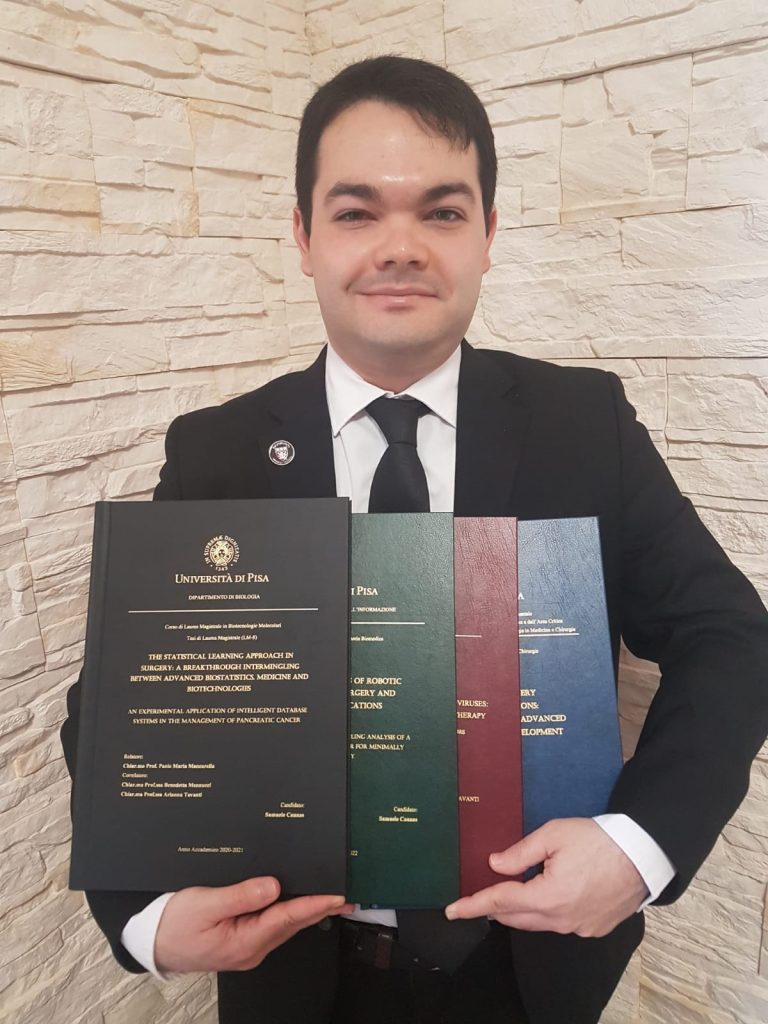
Do you think you are an example for your peers and how do you relate to them, how much time do you spend relaxing?
Io I managed to achieve everything I set out to do. To my peers I would like to say that you should never give up. Nothing is impossible, nothing is impossible. Each of us can follow a different path to achieve the same goals. You can get there with as many degrees as in my case. But also with other experiences: masters, specializations ... they are personal choices, without prejudice to the iron will to reach the goal. Without neglecting moments of relaxation. I am fortunate to have wonderful friends who have always supported me and with whom, by organizing myself, I was able to spend good time together.
Are you ready for an important experience abroad. Where do you see your future? Will there also be room for your country, Italy?
Experiences abroad are essential because science is cosmopolitan by nature. Going abroad is a logical continuation of one's training path. However, relations with one's country of origin must be kept firm. So in my future I certainly see Italy. I am deeply attached to Italy. I am grateful to my country where I received an education that has no equal abroad.

